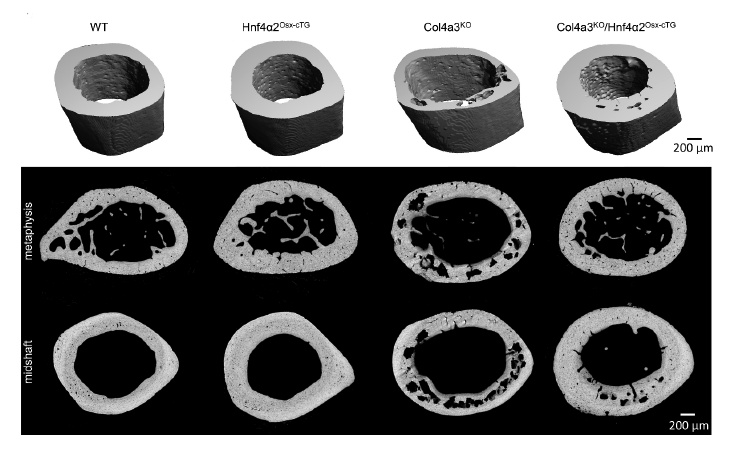Tag: Medicine
-

New Leadership in the Department of Medicine
Douglas E. Vaughan, MD, has announced his intention to step down as chair of The Department of Medicine, effective September 1; Susan Quaggin, MD, has been named as his successor.
-

Largest Cell Map of Human Lung Reveals Insights Into Disease
Northwestern Medicine scientists helped develop the largest and most comprehensive cell map of the human lung in a recent study published in Nature Medicine.
-

Newly Discovered Mechanisms Increase Chemotherapy Resistance in Breast Cancer
Northwestern Medicine investigators have discovered novel features of circulating tumor stem cells that can promote chemotherapy evasion and metastasis in triple-negative breast cancer, according to a recent study.
-

Transcription Factor Prevents Bone Frailty in Chronic Kidney Disease
Northwestern Medicine investigators have discovered that the overexpression of a specific transcription factor prevented bone loss in mouse models with complications from chronic kidney disease, according to a recent study published in the Journal of Clinical Investigation.
-

Understanding How Hormones Influence Anemia
Northwestern Medicine scientists have uncovered how peptides produced by bones during inflammation prevent anemia in mice, according to a recent study published in the journal Blood.
-

CT Scan Best at Predicting Heart Disease Risk in Middle Age
CT scans are better at predicting a middle-aged person’s risk for a heart disease, such as a heart attack, than genetics, reports a new Northwestern Medicine study published in JAMA.
-

Study Reveals Striking Excess Deaths for Black Americans Over Last 20 Years
From 1999 through 2020, Black Americans experienced more than 1.6 million excess deaths and more than 80 million excess years of life lost compared to white Americans, according to a recent study published in JAMA.
-

Increasing Early Cardiovascular Screenings for Dilated Cardiomyopathy
An informational communications tool provided to patients with dilated cardiomyopathy helped increase cardiovascular screenings in their first-degree relatives who have a higher risk of developing the genetic disease, according to findings published in Circulation.
-

Bioengineered Protein May Prevent COVID Infections and Improve Survival
A novel protein developed by Northwestern Medicine investigators improved survival and prevented brain infection in mice infected with SARS-CoV-2 when administered intranasally, according to a recent study.
-

Improving Crystal Engineering with DNA
Northwestern investigators have demonstrated that fine-tuning DNA interaction strength can improve colloidal crystal engineering to enhance their use in creating an array of functional nanomaterials.






